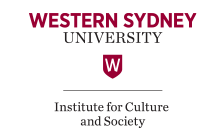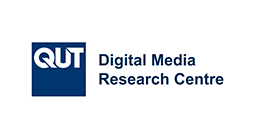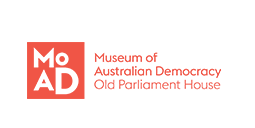Articles and Publications
Young People and Media Literacy
Published Reports | Notley, T., Chambers, S., Zhong, H.F., Park, S., Lee, J. Y., & Dezuanni, M. (2023) News and Young Australians in 2023: How Children and Teens Access, Perceive and are Affected by News Media. Western Sydney University. Notley, T., Dezuanni, M., Zhong, H.F. & Chambers, C. (2020) News and Australian Children in 2020: How young people access, perceive and are affected by news media, Research Report, Sydney, Western Sydney University and Queensland University of Technology. Chitranshi, B. (2020) Young People and News Engagement in 2020. Survey Report. Western Sydney University, Queensland University of Technology and the Museum of Australian Democracy. Dezuanni, M., Notley, T. & Corser, K. (2020) News and Australian Teachers: How news media literacy is taught in the classroom. Brisbane: Queensland University of Technology and Western Sydney University. Notley, T., Dezuanni, M. & Zhong, H.F. (2019) ‘The inclusion and representation of young people in the Australian news media’, Research report, Western Sydney University and Queensland University of Technology. Notley, T., Dezuanni, M,, Zhong, H,F, & Howden, S. (2017) News and Australia’s children: how young people access, perceive and are affected by the news, Research Report, Sydney, Crinkling News, Western Sydney University and Queensland University of Technology. |
Journal Articles | Notley, T., Zhong, H.F., Dezuanni, M., & Gilbert, S. (2022) Comparing children’s and teens’ news engagement practices and affective news experiences, Journal of Youth Studies. Dezuanni, M. and Notley, T. (2022), Media literacy for primary-aged students in the age of digital media and augmented reality, PETAA Paper, vol 225 , pp 1 - 8. Corser, K., Dezuanni, M. and Notley, T. (2021) How news media literacy is taught in Australian classrooms, Australian Educational Researcher. Dezuanni, M. (2021) Re-visiting the Australian Media Arts curriculum for digital media literacy education. Aust. Educ. Res. 48, 873–887 Notley, T. & Dezuanni, M (2019) ‘Advancing children’s news media literacy: learning from the practices and experiences of young Australians’, Media, Culture & Society, 41(5): 689-707. |
Conversation Articles | Notley, T. & Dezuanni, M., Park, s. (2023) 'Young Australians increasingly get news from social media, but many don't understand algorithms', The Conversation. Notley, T. & Dezuanni, M. (2020) ‘3 ways to help children think critically about the news’, The Conversation. Notley, T. & Dezuanni, M. (2020) ‘We live in an age of ‘fake news’. But Australian children are not learning enough about media literacy’, The Conversation. Notley, T. & Dezuanni, M. (2019) ‘On an average day, only 1% of Australian news stories quotes a young person. No wonder so few trust the media’, The Conversation. Notley, T. & Dezuanni, M. (2017) ‘Most young Australians can’t identify fake news online’, The Conversation. |
Other | Notley, T. and Dezuanni, M. (2020) Media Literacy Framework, Western Sydney University and Queensland University of Technology. Notley, T. (2020) ‘“Disaster coverage” in the news has overwhelmed young Australians in 2020.’ ABC Education website. December 15 2020. Notley, T., & Dezuanni, M. (2019). Toolkit: Analysing the Inclusion and Representation of Young People in the News Media. Western Sydney University. Dezuanni, M., Notley, T. (2019) Studying the news through the Australian Curriculum: A brief guide for teachers. Brisbane: Queensland University of Technology and Western Sydney University. Dezuanni, M. (2019) ‘Use The News: In the English classroom’, ABC Education website. Dezuanni, M. (2019) ‘Use The News: In media arts or across the curriculum’, ABC Education website. |
Videos |
Adult Media Literacy
Published Reports | Park, S., Notley, T., Thomson, T. J., Hourigan, A., and Dezuanni, M. (2024). Online Misinformation in Australia: Adults’ experiences, abilities, and responses. University of Canberra and Western Sydney University. https://doi.org/10.60836/jpmm-dw04 Notley, T., Chambers, S., Park, S., & Dezuanni, M. (2024). Adult Media Literacy in 2024: Australian Attitudes, Experiences and Needs. Australian Media Literacy Alliance and Western Sydney University. Notley, T., Chambers, S., Park, S., Dezuanni, M. (2021) Adult Media Literacy in Australia: Attitudes, Experiences and Needs. Western Sydney University, Queensland University of Technology and University of Canberra. Park, S., Lee. J. Y., Atkinson, S and Su, J. (2021) Media Literacy in Australia: A Qualitative Study. Canberra: News & Media Research Centre, University of Canberra. Dezuanni, M., Notley. T., Di Martino, L. (2021) Towards a National Strategy for Media Literacy. Research report. Australian Media Literacy Alliance. |
Conversation Articles | Park, S. and Notley, T (2024) ‘97% of adult Australians have limited skills to verify information online – new report’, The Conversation. Notley, T., Chambers, S., Park, S., Dezuanni, M. (2024) Most Australians are worried about artificial intelligence, new survey shows. Improved media literacy is vital, The Conversation. Notley, T., Chambers, S., Park, S., Dezuanni, M. (2021) Less than half of Australian adults know how to identify misinformation online, The Conversation. |
Journal Articles | Notley, T., Karanfil, G., & Aziz, A. (2024) The smart TV in low-income migrant households: Enabling digital inclusion through social and cultural media participation. Media, Culture & Society. Notley, T., Chambers, S., Dezuanni, M. & Park, S. (2023) Using YouTube to seek answers and make decisions: Implications for Australian adult media and information literacy, Comunicar. Park, S., Young Lee, J., Notley, T., & Dezuanni, M. (2023) Exploring the relationship between media literacy, online interaction, and civic engagement, The Information Society, 39 (4). Chambers, S., Notley, T., Dezuanni, M. Park, S. (2022) Values and Media Literacy: Exploring the Relationship Between the Values People Prioritize in Their Life and Their Attitudes Toward Media Literacy, International Journal of Communication. |
Videos | Report Launch Online Misinformation in Australia, Report Launch. Dec 03, 2024. Media Literacy Research Symposium Presentations ‘Civic Media Literacies: Pursuing equitable and just civic futures in a time of rampant media cynicism’, Associate Professor Paul Mihailidis, Emerson College, Boston Missing: Young People in Australian News Media, Izzy Tolhurst, Foundation For Young Australians (FYA) Panel events Sydney: ‘Using media literacy to confront the impact of disinformation on our democracy’ Canberra: ‘News, misinformation and media literacy’ Brisbane: ‘Media Literacy’s many tasks – promoting critical engagement with digital platforms’ |
Other | Notley, T. (2022) Misinformation won’t go away, but media literacy can help fight it, online article, 360info. Notley, T. and Thomson, T.J. (2020) What is misinformation and how can media literacy combat it?, Australian Associated Press (AAP). Thomson, T.J. and Notley, T. (2020) How do you know what information sources to trust?, Australian Associated Press (AAP). Thomson, T.J. and Notley, T. (2020) How do you fact-check an image?, Australian Associated Press (AAP). |











